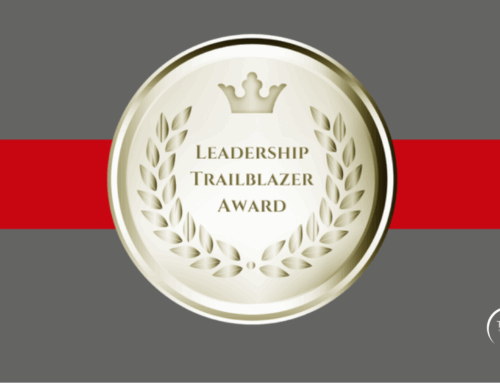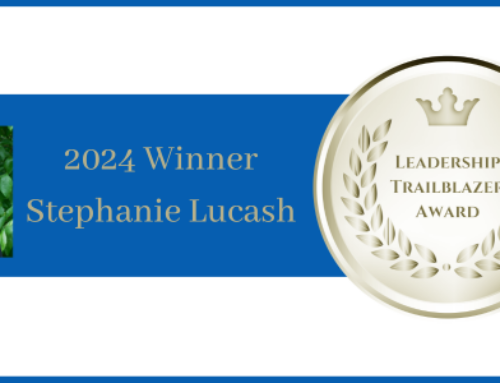Catching Up with Katie Babits, SGR Diversity & Partner Collaboration Manager
The League recently caught up with Strategic Government Resources Diversity and Partner Collaboration Manager, Katie Babits. Here is the interview:
Q: Recently SGR launched SGRecruiter — exciting stuff! Why was the portal created?
Katie: SGRecruiter was launched in collaboration with Team Zac and Blue Dove Group to change the way recruitment works in local government. It has been described as incorporating the ingenuity of dating sites and applying them to the recruitment process. SGRecruiter allows a prospect to maintain their anonymity until they are ready to communicate with a potential employer. The most exciting part, and a large driver for its creation, is to remove the impact of unconscious bias on the recruitment process.
Q: How does unconscious bias affect the recruiting process?
Katie: Unconscious bias is tricky, because the unconscious aspect of it means we are not aware that it is actually occurring. Humans naturally categorize things which we find familiar, thus we subconsciously prefer someone who has a similar name, education, experience, hometown, etc. However, these unconscious biases may cause us to eliminate people from a candidate pool in favor of those with whom we find more commonalities. One factor that studies have shown to impact applicants moving forward to the interview process is their names, which college or university they attended, or even the area of the country where they are from. By removing identifying information from the beginning stages of the process, studies have shown that more women, people of color, and people from broader socioeconomic backgrounds make it further in the process than when those identifying factors are present.
Q: Can you provide an overview of the concept and how it works?
Katie: On the prospect side, anyone can sign up for free and fill in their experience, education levels, and areas they are interested in working. They also can cite preferred areas they would like to work, such as jobs located by state. Prospects can then choose if they are open to being contacted by potential employers. Once they choose to make their account active, employers ready to hire will be able to view the prospect’s information based on years of experience, level of education, salary requirements and areas of interest, without seeing the organization(s) where the prospect has worked, the prospect’s name or the name of schools they have attended. When the employer finds a prospect that matches their requirements, they ask to be connected and are only connected once the prospect approves the request.
Q: How do candidates and employers get matched up?
Katie: Candidates (aka prospects) fill in areas of experience with correlating years of experience (i.e. finance – 5 years, supervising – 3 years, social media – 3 years), education level attained, salary requirements, and skills (i.e. community engagement, conflict resolution, diversity and inclusion). They also include salary requirements, career goals and geographic preference. When the employer creates the position they want to fill, they can enter the education level, areas of experience, and salary requirements and they will see the number of people who in SGRecruiter who meet their criteria. If they have an idea of how many prospects they want to consider or move on to interview, they can modify their requirements to impact the size of the pool.
Q: About how many people and employers are taking advantage of SGRecruiter?
Q: You recently transitioned from local government to consulting with SGR, what prompted the change?
Katie: I was planning a move to Phoenix and have always kept in touch with Ron throughout my career. I was working in local government in diversity and inclusion, and Ron shared that he wanted SGR to have a role dedicated to diversity and inclusion, both as an element to professional development and to diversify executive recruitment. It really was a dream job for me, to be able to do the work I am passionate about in local government across the country.
Q: What advice do you have for women who may wish to transition to government consulting?
Katie: Talk to people and find those with common interests. Being in local government is so beneficial because we are all servant leaders, and I when we find those with common interests, that is where you are able to expand your knowledge and experience. I have had the privilege of finding roles that hone my passion for connecting people, educating professionals and especially shining a light on diversity, equity and inclusion in the public sector. It is because of the people I have met along the way with a shared passion that I was able to find a niche in consulting doing what I love.
Q: Anything else you’d like to add?
Katie: I am really excited about the future of our local government workforce. With organizations like the League of Women in Government, we have been able to see actual numbers of what leadership in local government looks like. Since that has taken the spotlight, we as an industry have had to take an honest look at how we recruit and retain highly talented individuals, and asking ourselves if our workforce actually reflects the communities that we serve. This transparency embodies servant leadership, and I am optimistic to see the transformation toward an ever evolving inclusive workforce.




